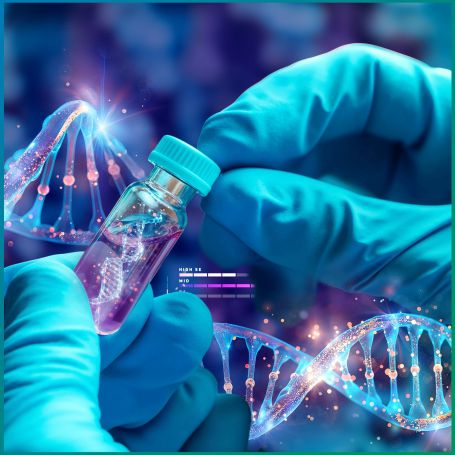
This test plays a crucial role in fertility investigations, urological assessments, and diagnosing infections in the male reproductive system.

A C/S Semen Test is a diagnostic procedure used to examine semen samples to identify any infections, bacteria, or abnormalities that could affect male fertility or indicate an underlying medical condition. The term "C/S" stands for Cytology and Sensitivity, which refers to the two key components of the test: the microscopic examination of cells and the culture of microorganisms to determine which antibiotics are effective against any identified infections.
1] Semen Collection: The patient is usually asked to provide a semen sample through masturbation into a sterile container. In some cases, a special collection method may be used if a male is unable to ejaculate naturally. The sample is collected in a private, clean room at a clinic or fertility center. It is important for the sample to be collected after a period of abstinence, usually 2-3 days, to ensure the most accurate results. The semen sample must be kept at body temperature and delivered to the lab as soon as possible after collection.
2] Microscopic Analysis (Cytology): In the lab, the semen sample is first examined under a microscope to assess sperm count, motility (movement), morphology (shape), and the presence of abnormal cells. The cytological analysis will help detect any issues with sperm quality or abnormalities in the semen.
3] Sensitivity Testing (Culture): If there is any suspicion of an infection, the semen sample is cultured to detect the presence of bacteria, fungi, or other microorganisms. The culture will help identify specific pathogens, such as Chlamydia, Gonorrhea, or Mycoplasma, and will determine which antibiotics or antifungal treatments would be most effective against the infection.
4] Additional Tests: Depending on the findings, the lab may also perform additional tests to measure parameters like pH levels, white blood cell count, or the presence of seminal antibodies that could indicate autoimmune reactions.
1] Normal Semen Analysis: If no infection is found and sperm count, motility, and morphology are within normal ranges, the semen quality is considered healthy, and infertility may be attributed to other factors, such as female infertility or lifestyle factors.
2] Infection Detected: If bacteria or other pathogens are identified, the test will also determine the sensitivity of the infection, indicating which antibiotics or antifungal treatments will be most effective in clearing the infection.
3] Abnormal Sperm Quality: In cases where sperm count, motility, or morphology is abnormal, further evaluation may be required to determine if the issue is related to an infection or another underlying condition, such as hormonal imbalances, varicocele, or physical blockages.
4] White Blood Cells: Elevated white blood cell counts in the semen could indicate an active infection, inflammation, or chronic prostatitis.
Diagnopein Diagnostic Centre in Mumbai offers a comprehensive, accurate, and efficient service for the C/S Semen Test, using advanced laboratory techniques and expert analysis to provide precise results. With state-of-the-art facilities and a team of highly trained specialists, Diagnopein ensures that your test results are not only quick but also reliable, enabling you and your healthcare provider to make informed decisions about your health. Whether for fertility assessment, diagnosing infections, or evaluating reproductive health, Diagnopein’s personalized care and attention to detail make it a trusted choice for those seeking comprehensive semen analysis.
1. Culture Method
2. Sample
3. Colony Count
4. Organism(s) Isolated
5. Culture Report: Culture yields growth of
6. Culture isolated after 7 days :
7. Culture isolated after 14 days:
8. Culture isolated after 21 days:
9. Ampicillin
10. Amikacin
11. Amoxicillin clavulanate
12. cefoperazon+sulbactam
13. Cefuroxime
14. Cefepime
15. Cefotaxime
16. Ciprofloxacin
17. Ertapenem
18. Gentamicin
19. Imipenem
20. Meropenem
21. Norfloxacin
22. Nitrofurantoin
23. Piperacillin-tazobactam
24. Trimethoprim-Sulfamethoxazole (Cotrimoxazole)
This test is typically used to investigate male infertility, diagnose infections (like Chlamydia or Gonorrhea), and assess sperm quality. It can also help if you experience symptoms like pain during ejaculation or unusual semen.
The semen collection itself is not painful, though it can be uncomfortable for some. The test does not involve any invasive procedures.
If an infection is detected, antibiotics or antifungal treatment will be prescribed based on the specific pathogen identified.
Results usually take a few days to a week, depending on the complexity of the analysis and sensitivity testing.